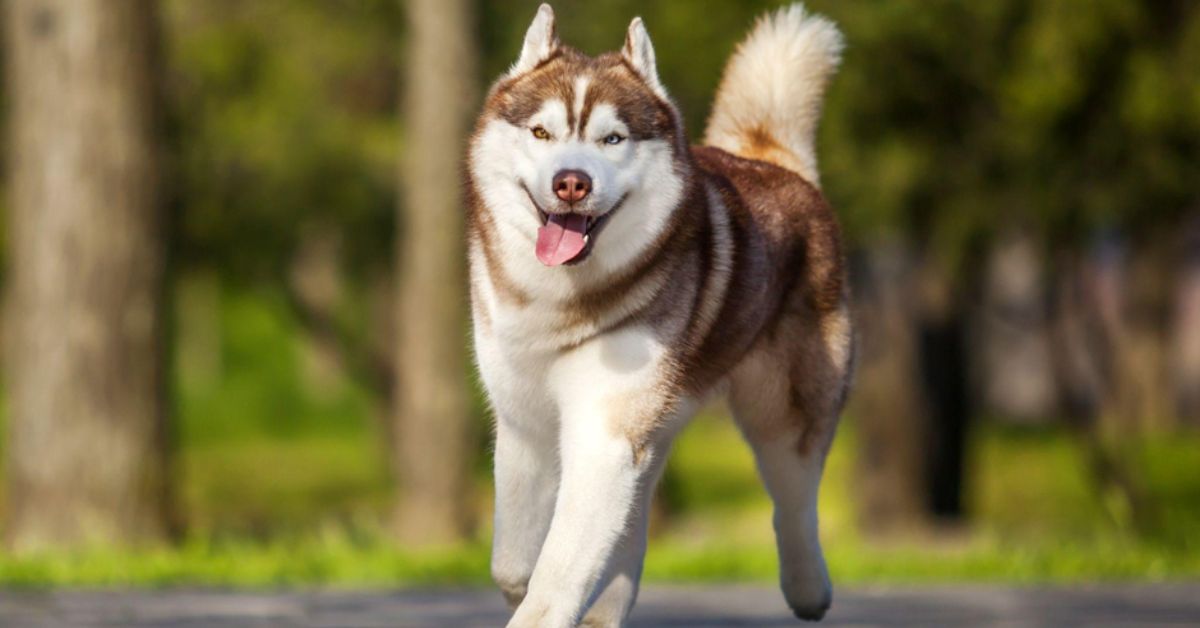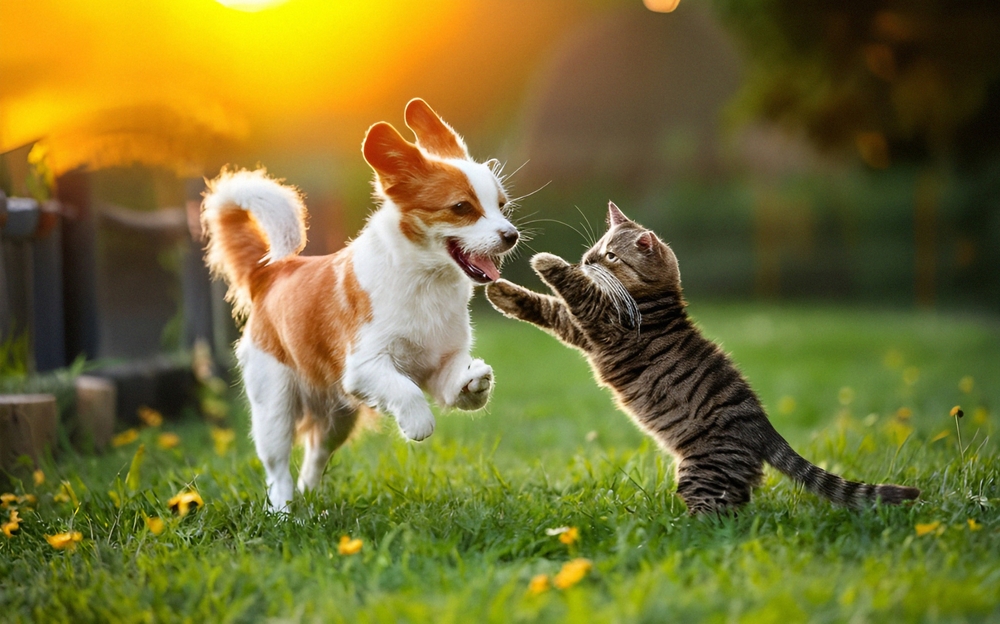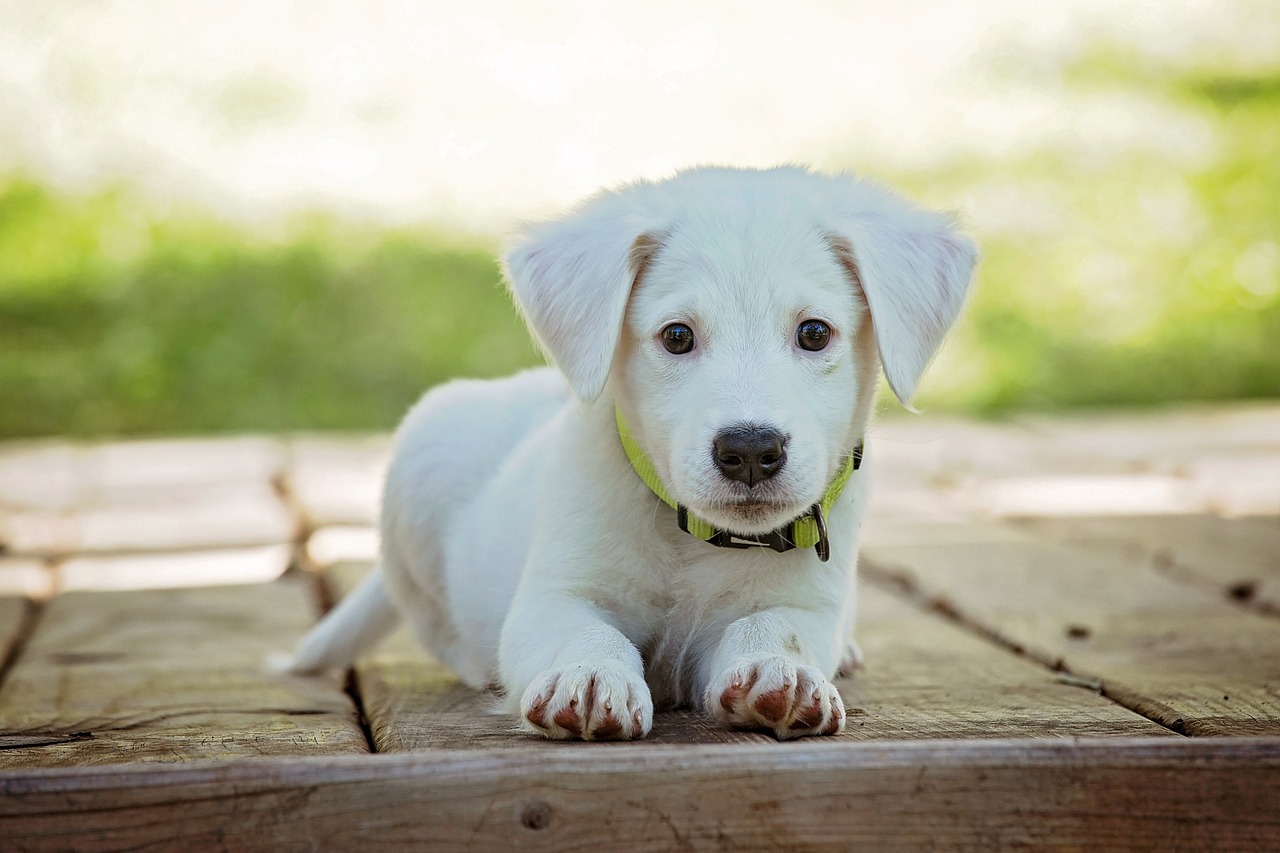PET
Husky Life Expectancy: Everything You Need to Know

You love your husky, how could you not? They’re full of energy, life, and of course, personality. Whether they’re yowling, barking, or even protecting your property, huskies continue to be one of the most highly sought-after dog breeds around.
While huskies are a great breed, there’s a lot you need to know about them before you consider adoption. For example, it’s helpful to know what they should eat, how much care will cost, and how long they’ll live.
What’s the Average Husky Life Expectancy?
The average husky life expectancy is 12-15 years on average, which is a little bit bigger than the average medium-sized to large-sized breed average, which comes in at only 10-12 years. Huskies tend to thrive in cold climates and many factors will influence how long they live.
Factors that Influence Husky Life Expectancy
Huskies can live for a long time, but only when they’re cared for properly, and unlike other breeds, huskies have some unique needs to account for.
We take you through the various factors that influence a huskies lifespan below.
Where the Husky Came From (Breeder)
Now, this isn’t always possible, but if you’re adopting a husky or buying a husky you should inquire about their breeder. Knowing which breeder they came from, and if they’re a reliable one, will help you determine if they’re a healthy dog.
You’ll want to look for breeders that are certified by organizations like the American Kennel Club (AKC) for following the appropriate breeding standards. This ensures that they’re following the best practices, socializing the dog from a young age, and testing their genetics.
This doesn’t automatically guarantee that your husky will last for 15 years, but it’s worth checking to see if you have to manage any health conditions.
Diet
One of the most important factors to consider when discussing husky life expectancy is their diet. You’ll want to make sure they’re eating a healthy diet and getting the necessary amount of nutrition. According to Dog Academy, the best dog food for huskies will contain meats, fruits, vegetables, and even some whole grains.
Ultimately, the goal is to feed your husky a healthy diet that includes protein, fat, and carbohydrates. Also, consistency is key, and you’ll want to avoid feeding them foods that cause bloating or lethargy. The last thing to note about diet is that obesity can be a silent killer, so make sure their weight is healthy for their size.
Exercise
Huskies are a working dog breed, which means this dog thrives when they have something to do, whether that’s patrolling your backyard or pulling a sled. Due to their high levels of energy and non-stop drive to play and have fun, you need to make sure you’re helping them manage their energy levels with one to two hours of exercise daily. This will prevent obesity and other health conditions from developing later in life.
While exercise is good for preventing health conditions, it will also help you manage your husky’s health problems. For example, joint pain, inflammation, and even bloating can be improved with exercise.
Health Issues
Huskies tend to be healthy breeds, but that doesn’t mean they’re immune to health issues. While not all health issues are fatal, they can reduce your husky’s life expectancy if you leave them untreated. For example, if your husky has hip dysplasia you need to know about it and account for it with checkups and proper physical therapy. Failing to do so can lead to lethargy, a lack of exercise, and even contribute to obesity.
Eye problems can also be complications for huskies, and they tend to develop later in life. Keep an eye on these issues and do your best to treat them based on a plan from your vet. Obesity, heart problems, and other medical problems will also become common later in life.
The moral of the story here is that you need to keep an eye on health issues and prevent them from getting worse to ensure that your husky lives a happy and healthy life.
Help Your Husky Life Their Best Life
Huskies can live a long time when you care for them properly with a healthy diet, plenty of exercise, and annual trips to the vet.
Always make sure you feed them the best dog food for huskies, and most importantly, give them lots of love!
PET
The Ultimate Cat Tree for Large Cats: Comfort, Style, and Fun

If you’re a cat parent to a large feline, you know the struggle of finding a cat tree for large cats that’s sturdy, spacious, and safe. Big cats like Maine Coons, Ragdolls, and even larger mixed breeds deserve more than just average furniture—they need a well-designed cat tree and tower that caters to their size and energy levels.
A cat tree isn’t just a piece of furniture; it’s a haven for climbing, scratching, and lounging. In this blog, we’ll dive into why cat trees for large cats are essential, what features to look for, and how you can pick the perfect modern cat tree for your home.
Why Large Cats Need Special Cat Trees
Large cats have unique needs, and ordinary cat trees often fall short. Here’s why investing in a cat tree for big cats is crucial:
Stability and Safety
Standard cat trees may wobble or tip under the weight of a large cat, posing safety risks. A tall cat tree for big cats is designed with a reinforced base and sturdy posts to handle their weight with ease.
Room to Stretch
Bigger cats require cat tree furniture with wider platforms, larger hideouts, and spacious perches to fully stretch out and relax.
Mental and Physical Exercise
Cats are natural climbers, and a cat tree tower encourages climbing, jumping, and scratching. This keeps your feline healthy and engaged while preventing boredom.
Protect Your Furniture
By providing your large cat with an appropriate outlet for scratching, like a cat scratching tower, you can save your furniture from destructive behavior.
Key Features to Look for in a Cat Tree for Large Cats
When shopping for the best cat tree for large cats, here are some must-have features:
Durable Construction
Look for a modern cat tree made from high-quality materials like solid wood or MDF. Thick sisal-wrapped posts and a wide, stable base ensure safety for even the largest cats.
Extra-Large Platforms
Cats love lounging on elevated spaces. Choose a cat tree house with oversized perches and hideouts to provide ample space for relaxation.
Tall Height and Levels
A tall cat tree gives your cat the vertical space they crave. Multi-level designs add variety and encourage exploration.
Sisal Scratching Posts
High-quality scratching areas are essential for large cats to sharpen their claws and satisfy their instincts.
Stylish Design
Since the cat tree furniture will likely be a part of your living space, opt for one with a neutral, minimalist, or aesthetic design that blends with your decor.
Top Cat Trees for Large Cats
If you’re looking for the best cat trees for sale, here are a few standout options that cater to large felines:
The Four Seasons Cat Tree
Designed for multi-cat households, this cat tree for large cats combines durability with elegance. It features spacious platforms, hideouts, and reinforced posts to support big cats. With new colors now available, it’s a perfect addition to modern homes.
Luxury Tall Cat Tower
A premium choice for large cats, this tower boasts tall levels, wide perches, and a stable foundation. Its sleek design makes it a great cat tree furniture for style-conscious pet parents.
Mushroom Forest Cat Tree
This playful and functional tree features a unique mushroom-inspired design. It offers multi-level platforms, spacious hideouts, and strong construction, perfect for big cats with active lifestyles.
How to Help Your Cat Adjust to Their New Cat Tree
Introducing a new cat tree for big cats takes some patience. Follow these tips to ensure a smooth transition:
Choose the Right Spot
Place the tree near a window or in a central area where your cat loves to lounge and observe.
Encourage Exploration
Use treats, toys, or catnip to entice your cat to climb the tree and explore its levels.
Be Patient
Some cats may take a few days to adjust to new furniture. Give them time to explore at their own pace.
Why Choose Mewcats for Cat Trees?
At Mewcats.com, we understand the unique needs of large cats. Our collection of modern cat trees, cat tree towers, and cat scratching posts is designed to combine functionality, durability, and style. Whether you’re looking for a cat tree for large cats or a sleek, aesthetic option to match your decor, we’ve got you covered.
Explore our full range of cat trees for sale and find the perfect cat tree house for your furry companion. With durable designs and spacious platforms, your big cat will feel right at home!
Final Thoughts
A cat tree for large cats isn’t just a luxury—it’s a necessity for their comfort, health, and happiness. By investing in a high-quality, sturdy, and stylish cat tree, you’re giving your feline friend a space to call their own.
Browse our collection of the best cat trees and towers at Mewcats.com and let your big cat rule their domain in style!
PET
Budgeting Tips for Your Pets to Care for Them Responsibly

A pet is a wonderful and joyful addition to your family and can bring you happiness, peace, and lots of love. However, owning a pet isn’t as affordable as people may think. There are a lot of expenses when you get a pet, whether that be a dog, cat, rabbit, or even hamster. With a rise in pet ownership and risks of pets being abandoned due to costs, it is vital to budget for a pet. If you’re thinking about getting a pet to join your family, then ensuring you budget for it is pivotal. Use these budgeting tips for your pets to care for them responsibly and ensure you can provide for them.
Budget for initial pet costs
Without budgeting for the initial pet costs, your family pet can become part of your financial stress. The upfront cost of a pet is a one-time expense that can be very pricey. This is particularly the case for puppies and kittens as they are popular and highly sought after. It’s a good idea to thoroughly research and clearly understand the initial expenses of a pet. Do this regardless of if you’re buying or adopting.
For example, a dog from a pet store or breeder can cost on average around $1300 but, depending on the breed, can be a lot more than this. A cat can range from $300 to $2000 or more. Spaying or neutering a dog can range from $250 to $2000 plus; for a cat, it can be from $200 to $350 plus.
Plan for recurring pet costs
When it comes to having a pet, there are many recurring costs that are essential for your furry friend. For example, the most common recurring cost is pet food as this is essential to give your pet a healthy diet. Pet food costs around $100 and $500 or even more monthly depending on your pets’ dietary needs. It also depends on your pet’s size, age, breed, and other health factors and issues.
Medications can also be another recurring cost for your pet and prescription medications tend to come in three-, six-, and twelve-month supplies. This all depends on what your pet needs. If they have certain health conditions, they may need quite a bit of medication to improve their health. However, if they don’t have health conditions, they will still need medications such as flea treatment and worming tablets, especially for pooches and cats. The price varies depending on what medications your furry friend needs, but you should budget around $100 a month for routine prevention. It is always best to chat with your veterinarian about the cost of specific medications related to treatments.
You should also consider miscellaneous costs every month and set a realistic budget for them. This could be anything from toys to training. If you want a subscription box for your pet then put aside $30- $40 a month and if you want training, this can be $20- $75 per group class or around $210-$600 for private sessions. If your pet goes through toys daily or weekly, it’s best to put aside $40 to replace them.
Waste disposal also comes into this recurring budget for any pet. Cat owners need around $14 to $30 a month while dog owners need around $20 for puppy pads if needed. On top of this, dog owners need waste bags which can be an extra $10 or more. For rabbits, hamsters, guinea pigs, and any pet that needs sawdust plan around $5 to $15 per five-pound bag.
Don’t forget pet insurance will come into this budget too every month, but this price varies heavily.
Factor in other pet costs

As well as monthly expenses and one-time costs, other expenses come up often when owning a pet. These are things like vaccines, treatments, checkups, and other expenses that are often forgotten about. It is best to be prepared for everything, especially when it comes to your furry friend’s health! If you don’t factor in these health essentials, then you can easily get unpleasant surprises or a huge bill when you next visit the vet. These other pet costs do occur infrequently, but they should still be remembered and budgeted for. These can be:
- Core vaccinations for every three years. Costs around $90-$360.
- Preventative medications for every six months. Costs around $130-$190.
- Routine check-ups every year. Costs around $45-$250.
- Other vaccinations for every year or three years. Costs around $90-$360.
Remember, not all vaccinations are required, but vets highly recommend your pet to have the core vaccinations!
Be prepared for the unexpected
Unexpected costs can often arise when you have a pet. They surprise you and don’t usually fit into the budget, leaving you unprepared when they arise. To prevent this, it is ideal to put money aside each month for the unexpected. These costs can be a hotel fee if you travel with your pooch and other expenses such as clothing, food delivery, grooming, and pet furniture.
Have emergency pet funds
As well as preparing for the unexpected, it is best to prepare for emergencies too. These can happen at the drop of a hat, especially with dogs and cats. Even if you think you won’t, it’s inevitable at some stage you will visit the vet in an emergency with your furry friend. For cat owners, this could be UTIs as they can quickly become an emergency that requires immediate attention. For pets that have adventures outdoors, poison and unfortunate encounters with wildlife can result in an emergency.
An emergency vet visit typically costs around $300 and can easily jump to $10000 or more. This is why pet insurance is crucial as it can help you with the cost.
Consider pet insurance
Implementing pet insurance in your pet budget is vital for your furry friend. While it isn’t essential or mandatory to have pet insurance, it can be a lifesaver when emergency expenses arise. It aids you with high costs that you need to pay to help your furry friend. In the long run, this monthly cost can save you money when huge expenses are needed.
Leave some budget to give back to animal charities
Help animal charities by budgeting donations to keep them going and saving animals’ lives. This is like when Muslims Pay Zakat as they can sometimes budget to prepare for their payment. Giving back to animal charities is a wonderful way to ensure that other animals are safe and looked after, ready to find a new home. A monthly donation can go a long way and help keep the adoption industry thriving, so all pets can find a new home and get the medical attention they need.
Budgeting is vital when it comes to owning a pet. It is important to remember that it isn’t going to predict every expense, but it will help you be prepared for any unexpected and emergency costs that typically arise. Use these budgeting tips for your pets to care for them responsibly and provide them with everything they need.
PET
How to Identify and Treat Digestive Health Problems in Dogs

Digestive health is a pivotal aspect of canine wellness, directly affecting a dog’s overall health and vitality. Understanding the signs of digestive distress in your dog and the best ways to treat these issues can lead to better outcomes and a happier, healthier pet. This guide aims to provide you with comprehensive insights into identifying and managing various digestive health problems that dogs may encounter.
Common Digestive Problems in Dogs
Dog digestive issues can arise from several underlying conditions, lifestyle habits, or environmental factors. Common problems include bloating, diarrhea, constipation, and vomiting. Each of these issues has its unique set of causes. For instance, bloating, or gastric dilatation-volvulus, can happen due to quickly consuming food, leading to a life-threatening condition if not addressed immediately. Diarrhea can stem from various influences, such as dietary changes, infections, or parasites. It’s vital to recognize the symptoms early to prevent complications. While occasional digestive upset might not be alarming, persistent issues require immediate veterinary attention.
Recognizing Symptoms of Digestive Distress
Being able to identify the signs of digestive health issues in dogs is crucial for timely treatment. Common symptoms include: – Lack of appetite or interest in food – Changes in bowel habits, such as increased frequency or consistency – Vomiting, which may include undigested food or bile – Signs of discomfort, such as whining, pacing, or unusual postures Weight loss or excessive licking of lips can also indicate digestive issues. If any of these symptoms persist for more than twenty-four hours, it is advisable to consult a veterinarian. Early intervention can lead to better health outcomes for your dog.
Importance of Nutrition in Maintaining Digestive Health
Proper nutrition plays a significant role in maintaining digestive health in dogs. Dogs thrive on a balanced diet that includes the right nutrients, vitamins, and minerals to support gut health. Meal quality directly correlates with their digestive efficiency, promoting a healthy gastrointestinal tract. Studies indicate that diets rich in fiber promote increased gut health for dogs, aiding in maintaining a healthy weight and preventing obesity. High-quality proteins, probiotics, and prebiotics can also greatly enhance digestive function. It’s essential to avoid low-quality products filled with fillers that can lead to gastrointestinal problems over time.
Consulting Veterinary Experts
If you suspect your dog has a digestive issue, consulting a veterinarian is the best course of action. Vets possess a keen understanding of canine physiology and can accurately diagnose underlying conditions. They will often recommend diagnostic tests such as ultrasounds or blood work to pinpoint the issue. After careful evaluation, vets can suggest appropriate treatments ranging from dietary adjustments to medications. In many cases, dietary changes are pivotal in promoting gut health. Dogs may require specialized diets based on their individual health needs. For example, some dogs may benefit from low-fat diets, while others may need high-fiber options to assist with constipation.
Home Remedies for Mild Digestive Issues
While professional advice is crucial for severe cases, pet owners may safely adopt certain home remedies for mild digestive discomfort in dogs. Simple dietary modifications, such as introducing bland foods like boiled chicken and rice, can often alleviate issues temporarily. Keeping your dog hydrated is another essential aspect of at-home care when dealing with diarrhea or vomiting. Additionally, probiotics can be beneficial in restoring gut flora and alleviating symptoms. Several commercial options are available that cater specifically to canine digestive health. Always consult your veterinarian before starting any new treatment or supplement to ensure it suits your dog’s unique health profile.
Preventive Measures to Enhance Digestive Health
Taking preventive steps can significantly reduce the occurrence of digestive health issues in dogs. Regular vet check-ups are vital in monitoring your dog’s health and preemptively addressing potential issues. Establishing a feeding schedule and maintaining portion control can deter overeating, a common cause of many digestive problems. Including high-quality commercial dog food enriched with prebiotics and probiotics can also serve as preventive measures for enhancing gut health. Adding fresh vegetables and fruits approved for dogs can provide valuable nutrients and fiber for digestive health. Obesity has diagnostic associations with various digestive conditions, so regular exercise is crucial for maintaining an optimal weight.
Recognizing Food Allergies and Intolerances
Food allergies and intolerances can also contribute to digestive problems in dogs. Symptoms may vary from mild to severe and include skin issues, gastrointestinal upset, and ear infections. Identifying specific allergens involves a process of elimination, often requiring a controlled diet. Common allergens in dog food include beef, dairy, chicken, and wheat. If you suspect your dog has a food intolerance or allergy, consult with your veterinarian to implement an elimination diet. After a controlled period, you can gradually reintroduce various proteins to determine the culprit.
Supplementing Your Dog’s Diet for Optimal Gut Health
In addition to high-quality dog food, certain supplements may help promote digestive health. Omega-3 fatty acids, for instance, can reduce inflammation in the gut, while digestive enzymes may aid in breaking down food more efficiently. Adding these supplements, after consulting with a vet, can enhance nutrient absorption and overall health. Always keep in mind that not all supplements are suitable for all dogs, which is why it’s of utmost importance to get expert guidance for tailored advice. A veterinarian may suggest specific brands or formulations that fit your dog’s individual needs.
Being proactive about your dog’s digestive health can lead to remarkable improvements in their wellbeing. Regular vet check-ups, dietary adjustments, and recognizing early symptoms are all essential steps in ensuring your dog maintains a healthy digestive system. Providing a well-balanced diet, consulting with veterinary experts, and implementing preventive care measures are crucial for sustaining your dog’s digestive health.

 BUSINESS1 year ago
BUSINESS1 year agoExploring the Benefits of Commercial Printing

 HOME IMPROVEMENT12 months ago
HOME IMPROVEMENT12 months agoThe Do’s and Don’ts of Renting Rubbish Bins for Your Next Renovation

 BUSINESS12 months ago
BUSINESS12 months agoBrand Visibility with Imprint Now and Custom Poly Mailers

 HEALTH8 months ago
HEALTH8 months agoThe Surprising Benefits of Weight Loss Peptides You Need to Know

 TECHNOLOGY10 months ago
TECHNOLOGY10 months agoDizipal 608: The Tech Revolution Redefined

 HEALTH8 months ago
HEALTH8 months agoYour Guide to Shedding Pounds in the Digital Age

 HOME IMPROVEMENT8 months ago
HOME IMPROVEMENT8 months agoGet Your Grout to Gleam With These Easy-To-Follow Tips

 HEALTH11 months ago
HEALTH11 months agoHappy Hippo Kratom Reviews: Read Before You Buy!












